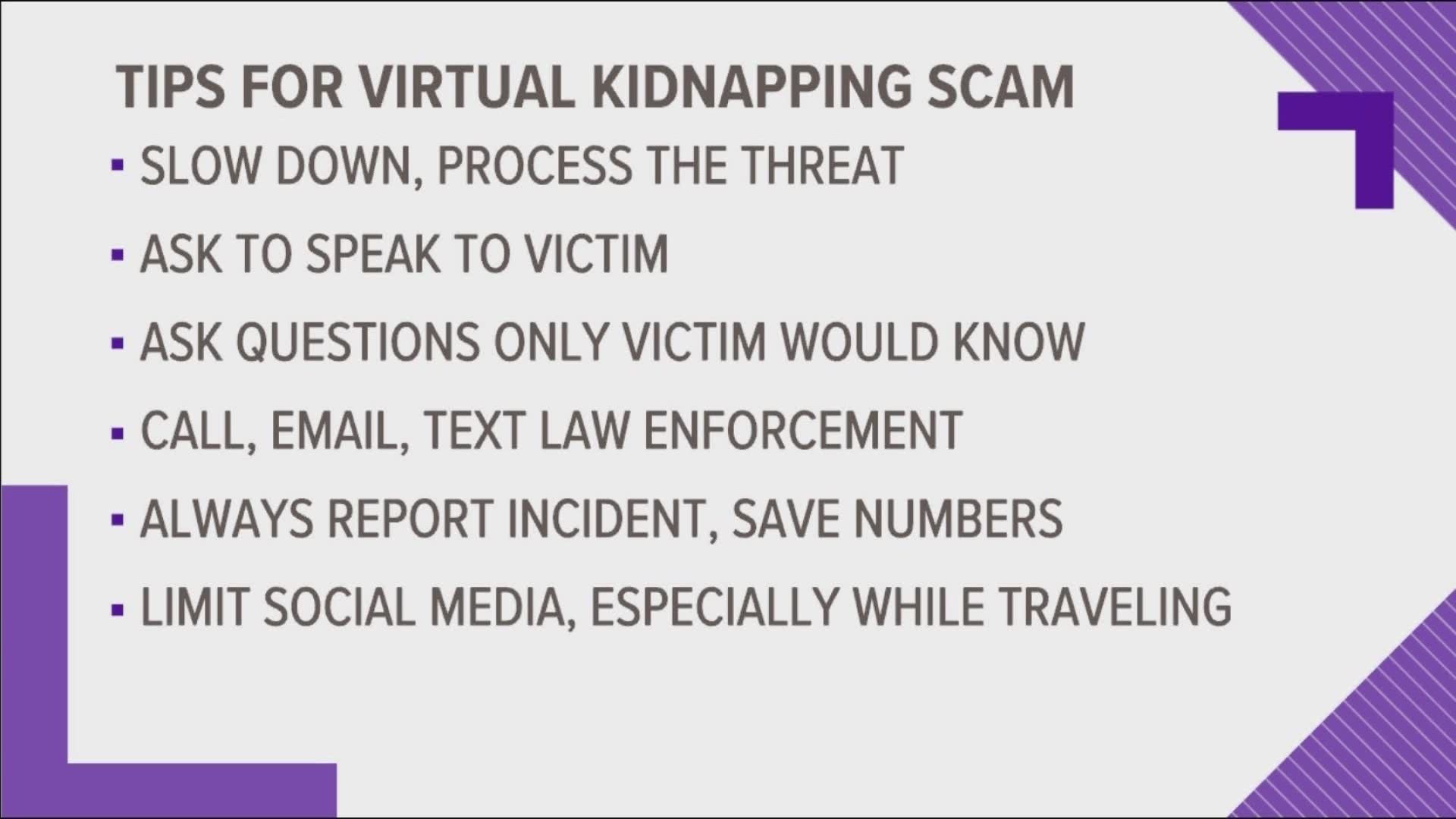TEXAS, USA — Special agents stationed at the FBI's El Paso branch held a press conference on the threat of "virtual kidnappings" on September 23.
Special agents say they currently have at least 5 active investigations of "virtual kidnappings" in the west Texas region, though they believe many cases of the crime may go unreported.
Here's how the crime often unfolds according to Special Agent Britton Boyd.
"These criminal groups will just call number after number until someone answers," said Boyd.
Once on the phone they will say something about the criminal organization they're with such as a drug cartel or crooked police officers often threatening the victim to comply.
Then according to Boyd, the criminal will demand the victim to answer a video call such as WhatsApp or Facetime, if the victim complies the criminal will snap a screen shot and hang up.
Boyd says this is part one of a two part plan to extort money.
Criminals now ideally have a name and picture of their victim, so they will use social media to call one of that victim's loved ones.
When contact is made, this is where the criminal will try to extort money, often sending the screen shot picture and saying that they've kidnapped this second victim's loved one.
Agent Boyd says one technique the criminal will use is to keep you on the line to prevent you from verifying any outside information until a wire transfer is made.
The agent did provide some tips on how to prevent falling victim to these kind of scams.
- Slow down, if someone calls you with a similar threat, process what they're saying, see if you can verify it
- Ask to speak with the victim, or ask for a call from their phone directly
- If someone is put on the phone, ask them questions only they would know the answer to
- Call, text, or email law enforcement, you don't have to hang up with the caller
- Always report the incident
- Limit what you post on social media, especially specifics of traveling

